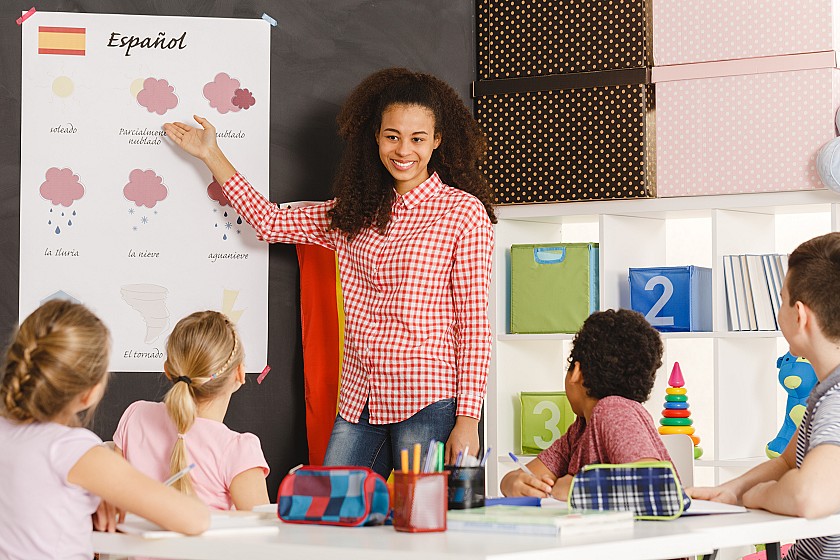
Emigrating to Spain with children? Everything you need to know about the Spanish education system.
10.07.2025Are you considering moving to Spain with your family? Then education is undoubtedly one of the first things on your mind. How exactly does the Spanish education system work? Is it comparable to Belgium or the Netherlands? And what are the options for Dutch-speaking families?
In this blog post, we delve into the Spanish school system and offer practical tips, especially for Belgians and Dutch people dreaming of a new life under the sun.
1. The Spanish Education System in a Nutshell
Education in Spain is divided into different levels:
- Preschool Education (Educación Infantil) – from 0 to 6 years
- Primary Education (Educación Primaria) – from 6 to 12 years
- Secondary Education Obligatoria (ESO) – from 12 to 16 years
- Pre-university Bachelor (Bachillerato) – from 16 to 18 years
- Then comes university or vocational training (FP - Formación Profesional)
Important to know: Education is compulsory from ages 6 to 16. And the good news? Public education in Spain is free (except for costs for materials or excursions).
2. Public, Private, or International Education?
As a UK or American citizen, you have several options, depending on your situation and where you plan to live in Spain:
Public schools (escuelas públicas):
- Free
- Lessons in Spanish (or the regional language, such as Catalan or Basque)
- Children are quickly immersed in the local culture
- Ideal for those who want to integrate well
Semi-private schools (concertadas)
- Combined funding (partly by the state, partly by parents)
- Often Catholic or religiously inspired
- Sometimes offer more structure or discipline
Private schools and international schools
- More expensive, but often offer bilingual or English-language education
- Ideal for expats or children who want to study in Belgium/the Netherlands later
- Wide choice of curricula: British, American, IB (International Baccalaureate)
Tip: In popular regions like the Costa Blanca, Costa del Sol, and Catalonia, you'll find many international schools, where Dutch or French is often also spoken.
3. Regional differences to consider
Spain is a country of regions, and this is reflected in education. In places like Catalonia, the Basque Country, and Galicia, education is partly in the regional language. So:
- In Barcelona, your child will be taught in Catalan, with Spanish and sometimes English as a second language.
- In Valencia, Valencian is also used.
- In Madrid or Andalusia, education is entirely in Spanish.
So always check carefully what language the teaching materials are in before enrolling your child.
4. School year and holidays in Spain
The school year in Spain runs from mid-September to the end of June. There are three trimesters, with holidays in:
- Christmas (two weeks)
- Semana Santa (around Easter)
- Summer (July and August)
Spanish schools often operate on a half-day schedule or with a long lunch break. Classes rarely take place after 2 p.m., although many schools offer after-school care or lunch options.
5. Emigrating with school-aged children: what should you pay attention to?
- Make sure you have an international report or learning certificate from your school in Belgium/the Netherlands.
- Bring translated diplomas and vaccination booklets.
- If possible, plan a school visit before your move. Many Spanish schools are open to introductory interviews.
- Be aware of the registration deadlines. Registration usually takes place between March and May.
6. What do other expats think?
Many English speaking people are positively surprised by the Spanish school system. Children learn Spanish quickly (especially at a young age) and usually settle in quickly. However, it can sometimes take some time to get used to the lower structure and stricter rules of public schools. International schools, on the other hand, offer a more familiar approach and teaching methods.
7. Conclusion: what is the best choice?
There is no one-size-fits-all answer. Your choice depends on:
- The age of your child(ren)
- Your integration plans
- Your budget
- The region you will be living in
Ready to take the plunge?
Emigrating to Spain with children requires preparation, but the Spanish education system offers a surprising number of opportunities. Whether you choose integration through public schools or an international approach, there's a suitable solution for every family.
Do you have questions or need help with your emigration? Feel free to leave a comment or get in touch. We're happy to help you on your way to a bright future in Spain!